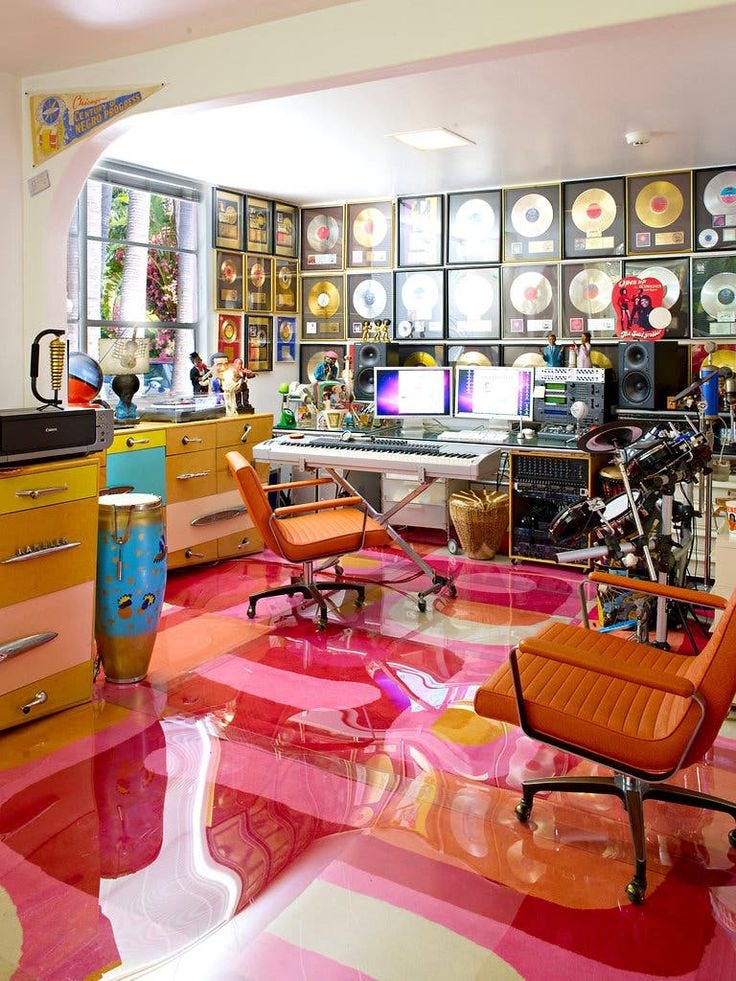She didn’t just walk into a room—Allee Willis happened to do it. Like a soul riff played backward through a View-Master, she was the kind of human who didn’t colour outside the lines because she didn’t see any lines to begin with. You could trace her story back to the clanging scrapyards of Detroit, where her father dealt in twisted metals and Allee—born in 1947—was already humming in harmonies she hadn’t learned yet. While other kids in the neighbourhood were idolizing cars and Barry Sanders' predecessors, she was eavesdropping on Motown through cracked windows and pretending her backyard was the lobby of Hitsville U.S.A.
Detroit did something to her. She wasn’t trained to play, but she could feel the music. While the Supremes were perfectly coifed and radio-ready, Allee was in her room, asking too many questions and scribbling down too many answers. By the time she got to the University of Wisconsin–Madison, they gave her a journalism degree just to shut her up. But Allee wasn’t built for objectivity. She was built for neon expression, rhymed emotion, and dancing your way out of the worst day of your life.
After a post-college migration to New York, she found herself at Columbia Records—on the advertising floor, not the studio. She soaked in the scene, not unlike a bright sponge in a glass of Tang. The artists were just down the hall, but Allee? She was already writing songs in her head during ad meetings. She didn’t need chords or time signatures—she had instinct, and it pulsed in funk.
Eventually, she set her coordinates for Los Angeles, the last place on Earth that still welcomed weird. She didn’t read music. She wasn’t a classically trained anything. But she was a writer of feel—a transcriber of joy, heartbreak, and the invisible chemistry that makes strangers dance in elevators. And in 1978, that feeling caught fire.
"Ba-dee-ya" happened.
“September,” co-written with Earth, Wind & Fire’s Maurice White and Al McKay, became the kind of song that ignores generations. Willis tried to get Maurice to replace “ba-dee-ya” with real words. He grinned and refused. She learned what every funk disciple eventually comes to realize: nonsense syllables can sometimes be the deepest form of sense.
That one record launched a thousand others. “Boogie Wonderland” soon followed, then “Neutron Dance” for the Pointer Sisters, then Patti LaBelle’s "Stir It Up" and "New Attitude." She slung hooks like a neon-fingernailed mechanic—fast, exact, and unforgettable. And then, somewhere between soul tracks and soundtracks, she co-wrote “I’ll Be There For You” for Friends, cementing her status as the accidental bard of both dancefloors and sitcoms.
But the songs, monumental as they were, were only half the saga.
The rest of Allee Willis’s genius was lived out loud at Willis Wonderland, a Streamline Moderne house in North Hollywood that she turned into a kind of sacred kitsch temple. She didn’t decorate—it was more like she collaged reality.
Rotary phones? Hundreds. Velvet Elvises? Plural. Lunchboxes, Pez dispensers, hand-painted pianos, trolls, neon signs blinking from every wall like pop-art Morse code. If Andy Warhol and Bootsy Collins had built a shrine together, they’d still have fallen short of Allee’s grand design.
She lived there not as a collector, but as a maximalist philosopher. Minimalism, she believed, was the aesthetic of the lifeless. Her gospel was cluttered with meaning. “If it’s not over the top, it doesn’t belong here,” she’d say, somewhere between a performance-art toast and a breakfast interview.
Even in death, she refused to fade. When she passed away in 2019, her partner Prudence Fenton—an animation visionary in her own right—took up the mantle to preserve her legacy. Willis Wonderland became more than a house. It became a message. A full-colour shout from the margins. A reminder that the weird kids can win, that feel matters more than form, and that joy—absolute, infectious, glitter-on-your-shoes joy—belonges on the record.
Because if Allee taught us anything, it’s this: life should groove.
And if you don’t know the words, sing ba-dee-ya.









Love her and everything she stood for. Thanks for a great tribute. David